Content by John Ball
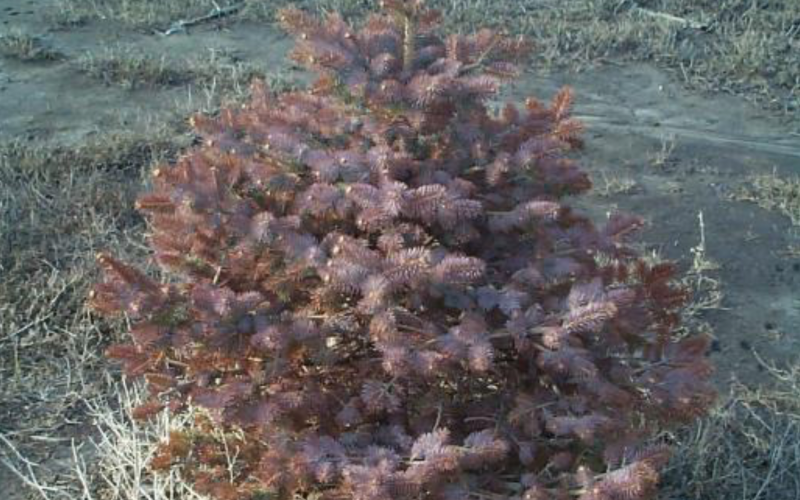
Weeds Around Spruce Seedlings?
I have many producers call wanting a control for the broadleaf weeds coming up around their young Colorado and Black Hills spruce seedlings. At this time of year we are looking at post-emergence herbicides to control weeds that have become established.
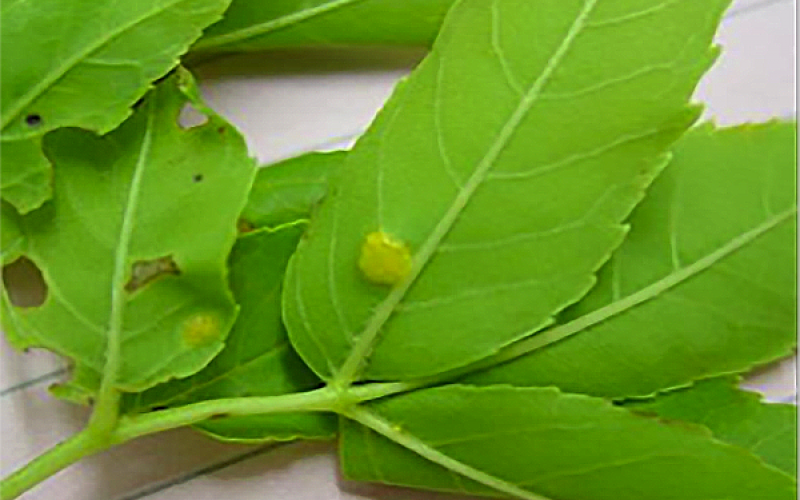
Tree Rust Diseases
Ash rust and crown rust are two common rust diseases that impact South Dakota trees.
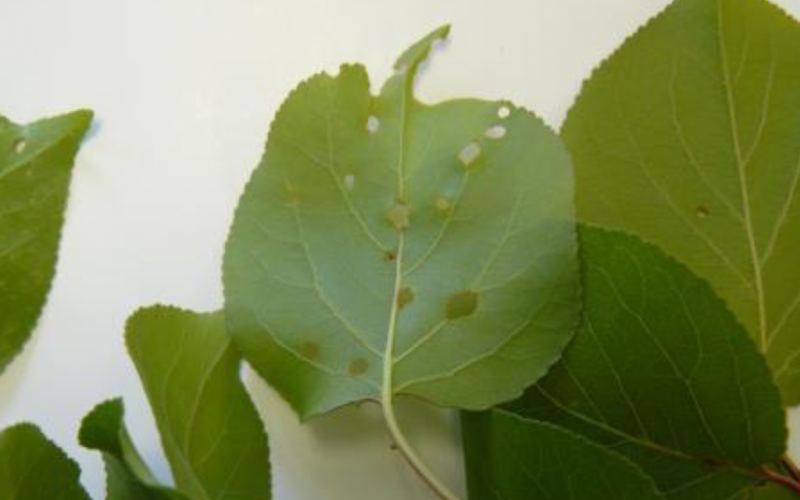
Shot Hole Disease in Apricots
Shot hole disease of apricot trees can be identified through symptoms on leaves and fruit. Small holes will appear on leaves while brown lesions with a deep purple band will show up on fruit.
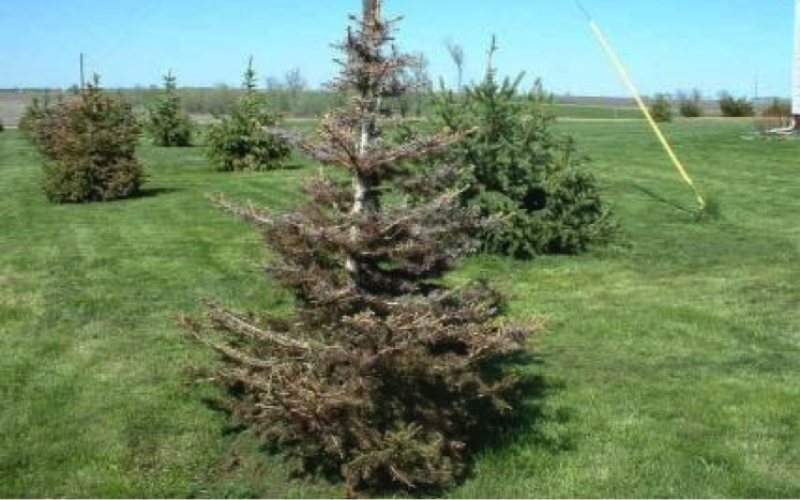
Trees for Abandoned Feedlots
Finding trees to plant over former feedlots or surrounding existing ones is not an easy task.
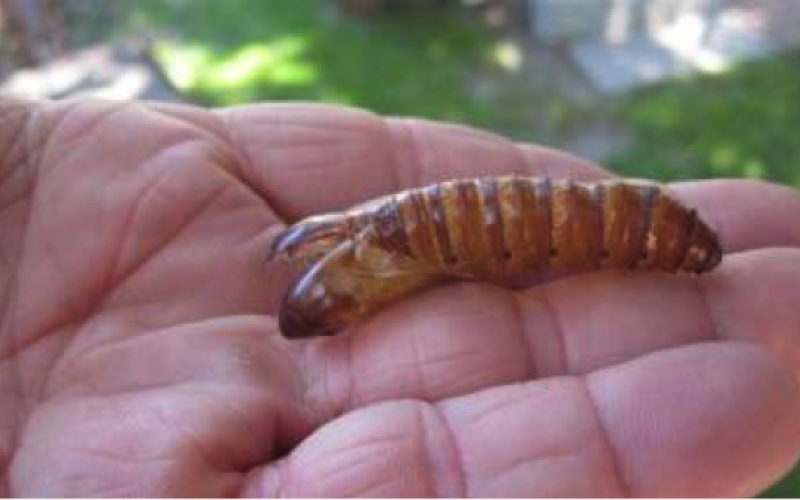
Common Ash Borers, Bark Beetles, and More
Green ash is still one of the most commonly planted trees in South Dakota, and considering the number of trees in windbreaks, along urban streets, and in yards already, it is a surprise anyone would think we need more. In addition to the numerous pest problems we already have with this tree, the looming threat of emerald ash borer should make us a little more cautious about wholesale recommending the use of this tree.
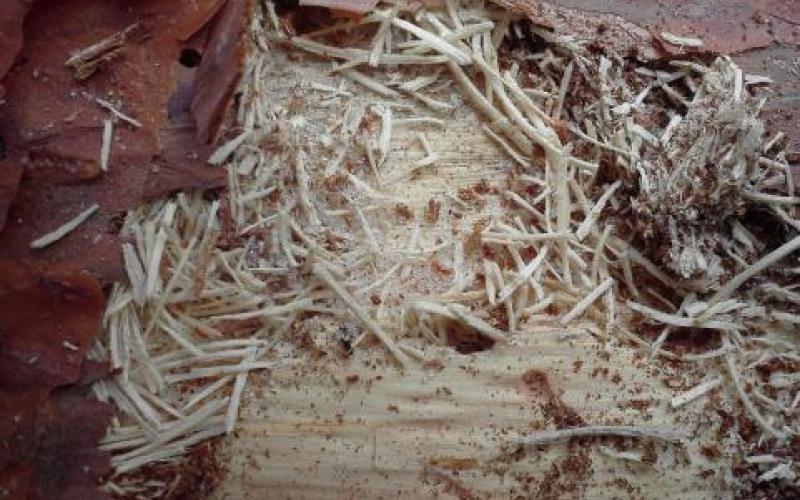
Sawyer Beetles and Pine Wilt Disease
A sample came in from a recently felled Scotch pine tree down in Southeastern South Dakota. The hole and sawdust is due to a sawyer beetle that had infested the tree.
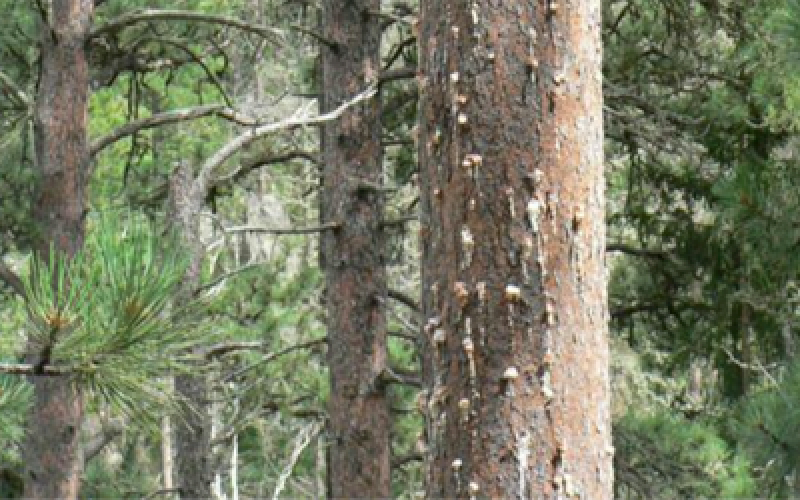
Insecticides for Protecting Pine Trees from Mountain Pine Beetle
There are no effective systemic pesticide treatments that will kill mountain pine beetle larvae inside the tree or adults as they emerge from an infested tree. Pesticide treatments are limited to protecting trees from becoming infested. These treatments are applied to the bark to kill the adult beetles as they land on the trunk and begin to burrow into the tree. This method of protection is highly effective and if the pesticides are applied at right time, losses may be as few as one or two trees for every hundred trees treated. However, only trees that are not infested should be treated. If a tree is already infested, pesticide application will not prevent the beetles from emerging and infested other trees.